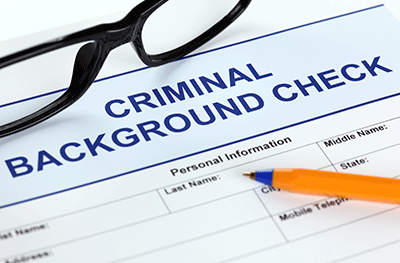New Criminal Background Check Law in Illinois
By Kelly A. Hayden, JD, Chief Legal Counsel
Published March 30, 2021

As we previously discussed, the Illinois General Assembly introduced legislation to change the way criminal background checks are conducted in Illinois. Governor Pritzker signed this legislation on March 23, 2021. The law, which is an amendment to the Illinois Human Rights Act, is effective immediately.
Employers who want to conduct criminal background checks will be required to abide by the law should they wish to deny employment to an applicant or deny an employment benefit (e.g., a promotion) to a current employee. Following are some frequently asked questions and answers regarding the new law.
What type of background checks are covered by the law?
The law applies when employers want to use a “conviction record” to make an employment decision. “Conviction record” means information indicating that a person has been convicted of a felony, misdemeanor, or other criminal offense, or placed on probation, fined, imprisoned, or paroled pursuant to any law enforcement or military authority.
Are all employers covered by the law?
The law applies to all employers in Illinois, regardless of size, unless the employer is subject to another law that requires them to act based on a conviction for a particular position.
Does this law prohibit employers from conducting criminal background checks or require employers to hire those with criminal records?
The law neither prohibits a criminal background check nor requires an employer to hire someone with a particular record. However, the law will require employers to follow specific procedures and document their actions when they discover an individual’s criminal background via a background check. Because the law is an amendment to the Illinois Human Rights Act, individuals who believe they have been wrongly denied employment or an employment benefit under the law can file a charge of discrimination with the Illinois Department of Human Rights.
Under what circumstances can an employer make a decision based on an individual’s criminal background?
The employer will have to meet one of the following two criteria: 1) the employer can show that there is a “substantial relationship” between the conviction record and the employment sought or held; OR, 2) that the granting or continuation of the employment would involve an unreasonable risk to property or the safety or welfare of specific individuals or the general public.
How does an employer determine “substantial relationship” between the conviction and employment?
“Substantial relationship” is defined as the position in question creating an opportunity for the employee to engage in the same or a similar criminal offense, and, that circumstances leading to the conduct for which the person was convicted will also occur in the employment position in question.
How does an employer show “unreasonable risk”?
To establish “unreasonable risk,” an employer must consider and assess a variety of factors, including the following: 1) the length of time since the conviction; 2) the number of convictions that appear on the conviction record; 3) the nature and severity of the conviction and its relationship to the safety and security of others; 4) the facts or circumstances surrounding the conviction; 5) the age of the employee at the time of the conviction; and 6) evidence of rehabilitation efforts.
Is the employer required to do anything else?
Yes. If the employer decides, based on one of the two criteria described above (substantial relationship or unreasonable risk), that it wishes to take employment action, the employer must engage in an “interactive process” with the individual. This interactive process requires the employer to notify the individual, including providing information regarding the basis for its decision, and allow the individual five business days to respond with any information they wish to provide to dispute the decision. If, after considering any information the individual provides, the employer decides to take employment action based on the conviction, the employer must notify the individual of the conviction at issue, the basis for the decision, any existing internal procedures for requesting reconsideration, and the right of the individual to file a charge of discrimination with the Illinois Department of Human Rights.
This new law represents a completely new process for most Illinois employers that engage in criminal background checks and employers are advised to 1) make determinations regarding which positions require such checks and the reason; 2) make sure those who are involved in the process understand the new law; and 3) implement policies and procedures regarding criminal background checks.
HR Source can assist its members with these new obligations! First, members should visit the Forms and Sample Documents (Interviewing and Hiring) resource on our website to obtain a sample background check policy, background check questionnaire, and written notification of preliminary decision and final decision. Further, our attorneys Sonal Shah and Jim Griffin will present an informational webinar “New Law Alert on Conducting Criminal Background Checks" (and other laws pertinent to background checks) on April 16, 2021, at noon.
Members with questions can contact us through the HR Hotline online or at 800-448-4584.